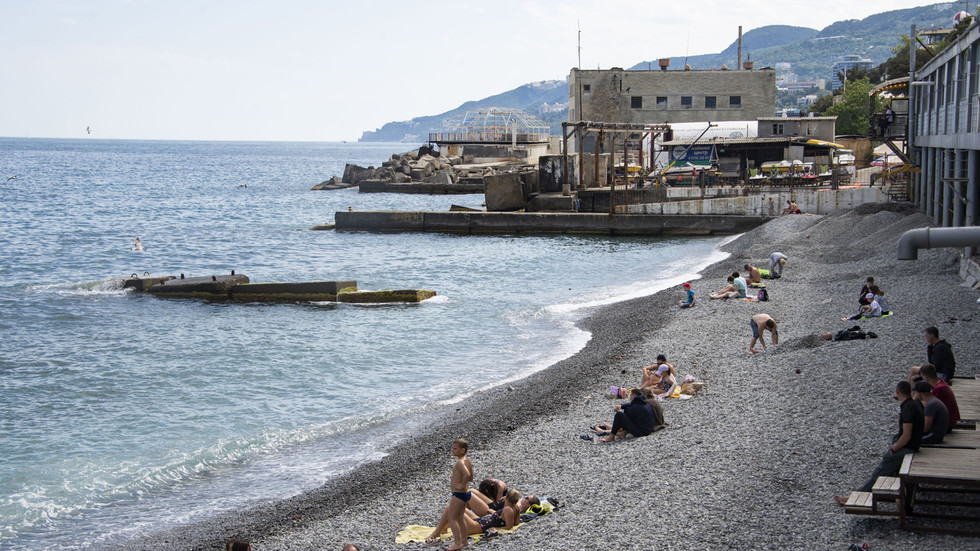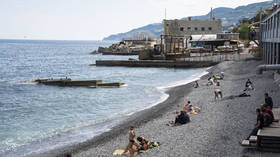
The deputy head of President Zelensky’s office has declared the future of the peninsula depends on the movement of Ukrainian forces

© Sputnik/Dmitry Makeev
Ukraine may sit down with Russia to discuss the future of Crimea if Kiev’s military reaches the peninsula’s border, Andrey Sybiha, deputy head of President Vladimir Zelensky’s office, told the Financial Times in an interview published on Wednesday. The official, however, has allegedly insisted that the military option is not off the table.
“If we succeed in achieving our strategic goals on the battlefield and when we will be on the administrative border with Crimea, we are ready to open [a] diplomatic page to discuss this issue,” he said.
The Ukrainian official explained that the country’s leaders were now increasingly talking about Crimea in anticipation of an expected Ukrainian counteroffensive.
The FT claims that the official’s remark is the most explicit sign Kiev has sent on a potential resumption of peace talks since last April, when Ukraine withdrew from discussions with Russia.

Thus far, President Zelensky has publicly insisted that any peace talks with Russia are contingent upon Russian troops leaving all territories within Ukraine’s 1991 borders, including Crimea.
Zelensky’s spokesperson has not responded to requests for comment, the media outlet added.
Also on Wednesday, Mikhail Podoliak, a senior aide to Ukrainian President Vladimir Zelensky, suggested talks on Crimea could begin once the Kremlin pulled its forces out of the peninsula.
The official expressed confidence that, one way or another, Ukraine would regain control of the region within seven months at most.
While Western powers have publicly declared support for Ukraine’s territorial integrity, the Financial Times piece is the latest of several reports that have suggested Kiev’s backers are skeptical about Ukraine’s ability to retake Crimea. Moreover, some Western officials are allegedly concerned that Russian President Vladimir Putin could deploy tactical nuclear weapons if faced with the prospect of losing the peninsula.
Crimea joined Russia in 2014, when its residents overwhelmingly voted in favor of it in a referendum held shortly after the Maidan coup in Kiev. The peninsula had historically been part of Russia since 1783, and was handed over to Kiev’s administrative control by the Soviet authorities in 1954.




